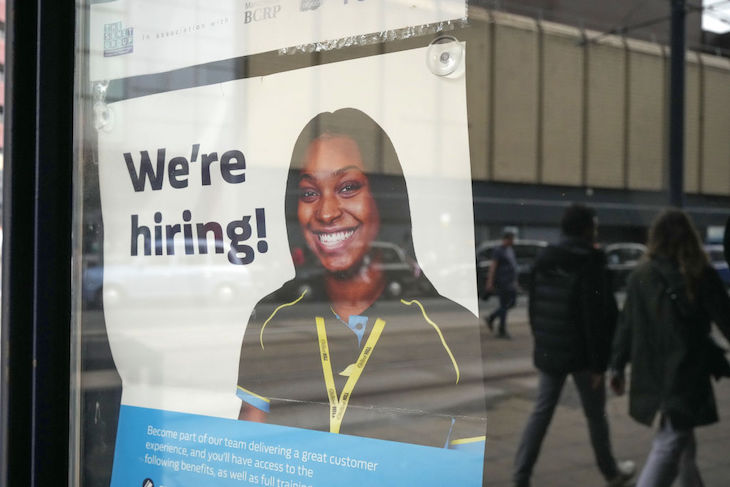If you think nothing works in Britain now, just wait. Wait, that is, until a future government (I’ll guess a Labour one, but can never tell with the Conservatives any more) introduces a universal basic income – that is a guaranteed, unconditional income for everyone, regardless of means, and regardless of whether they are working, looking for work or completely hostile to the concept that they should ever be expected to earn their keep. Some on the left have been plugging away at the idea of a basic income for years, but the left-wing think tank Autonomy has now announced a pilot scheme by which 30 volunteers will be randomly selected to receive £1,600 a month for two years. It says it is seeking funding from councils, philanthropists and local authorities.
According to Will Stronge, director of research at Autonomy, we are going to need a basic income in future ‘given the tumult of climate change, tech disruption and industrial transition’. What he didn’t say is that history is littered with episodes of tech disruption, yet in not one of them (from the invention of the plough, the steam engine, the computer, the internet) did they end the need for humans to work. On the contrary, as societies grew richer, they created ever more jobs in new areas.
But we had better take the idea of a basic income seriously, given how popular it appears to be, even with moderate figures on the left. Andy Burnham, Greater Manchester’s mayor, for example, has offered his support to the Autonomy trial. We really could end up with a future government doling out money regardless of any intention to work.
We had better take the idea of a basic income seriously
I will no doubt be accused of pre-judging Autonomy’s study (given that the organisation has published a report stating that its proposal ‘is about making a political point’ I am evidently not alone in this), but it seems pretty predictable what would happen were a basic income to be rolled about across the entire population. Some people would carry on working as before, using their basic income as a top-up to their salary. Some would give up their day job and use the money as an opportunity to pursue an alternative, potentially more rewarding but far more risky, career. Others would give up work and take early retirement, or, if they didn’t have work already, would stop looking for it. What absolutely no-one would do is to take up work if they were not already employed. No-one who is currently unemployed would say, as a result of having £1,600 a month pressed into their hands, no questions asked: that’s it, I must get a job. It would become virtually impossible to recruit people for dirty, unpleasant and menial work – however much those jobs would continue to need doing.
We know all this because we have, in effect, already had a nationwide pilot of a basic income. It was called the furlough scheme, which at one point was paying the wages of millions of people. We are still saddled with the results today: a significant number of people – around 600,000 – went missing from the workforce. That has made it far harder for employers to recruit and has made us even more reliant on migrant labour.
This is before we even get to the cost of a basic income. To pay all 37.5 million of working age in Britain £1,600 a month would cost £720 billion a year. That would almost double public spending. Implicit in the idea of a basic income is the idea that you raise taxes, the basic income making up for some of the extra taxation. But where does that leave us? With very high tax rates and a very strong disincentive to earn extra income – and a very strong incentive to avoid or evade tax.
A basic income is a recipe for an even more workshy Britain than we already have. Let’s hope we don’t have to find that out the hard way, because something tells me that Autonomy’s study might well find some way of avoiding coming to that conclusion.







Comments